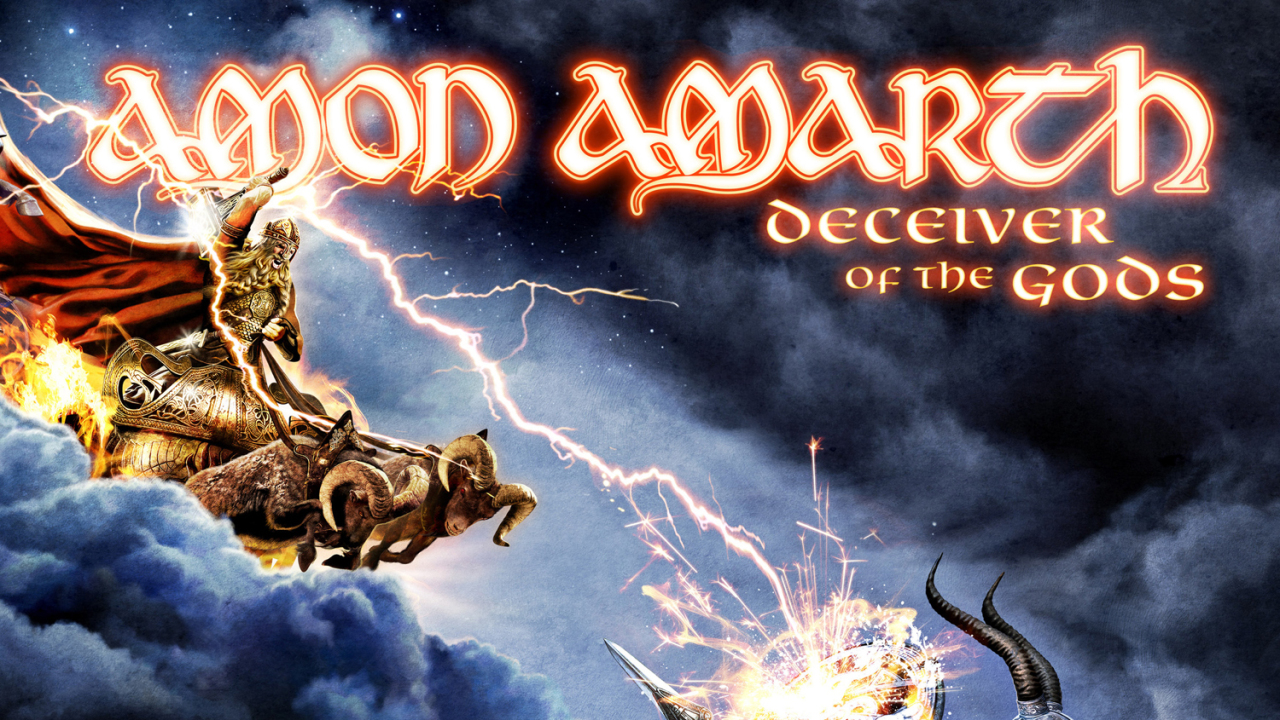You can trust Louder
Horned helmets off to Amon Amarth, whose longevity – now 21 years and counting – is down to the fact they have retained their musical edge and haven’t run out of ways of addressing the immortal themes of Valhalla and Danish raiding convoys. Album number nine, Deceiver Of The Gods, continues to invoke the longships-and-pillage stuff that populated Amon Amarth’s earlier albums, so long-time fans won’t be disappointed.
However, man-mountain Johan Hegg and his troops have thickened the plot this time around by adding several songs devoted to the Norse god Loki, the trickster deity renowned for shape-shifting and playing irritating pranks on anyone who came his way. Introducing their subject with the song As Loke Falls, the band – Hegg plus guitarists Olavi Mikkonen and Johan Söderberg, bassist Ted Lundström and drummer Fredrik Andersson – take us on a relentlessly heavy journey through the frozen wastes of the north (Father Of The Wolf) and ancient magic (Shapeshifter) before we arrive in the self-explanatory Hel.
Here we find an unexpected guest in the shape of former Candlemass singer Messiah Marcolin, who lends his bat-like wails to Hegg’s intestinal bellows, and there’s a touch of black humour before Blood Eagle, which begins with the sound of someone having their innards wrenched out with red-hot curling tongs.
This being Amon Amarth, there are more than a few songs celebrating the twin joys of quaffing mead and killing people with a massive sword. Warriors Of The North and We Shall Destroy are the obvious culprits, demonstrating once more the band’s collective knowledge of Scandinavia’s medieval history. Will they ever move on to new lyrical pastures? Somehow it doesn’t seem likely. Then again, who cares what the lyrics are about when the music is as impressive as this?
The title track is a devastating four-minute thrashathon that bursts from your speakers and takes no prisoners, while Hel is truly epic at a time when that word is overused. Producer Andy Sneap has given the songs on Deceiver Of The Gods his trademark clean-cut polish, layering tons of melodic guitar lines over the choruses to ensure that atmosphere is never sacrificed for precision, a tough trick to pull off.
What’s most impressive is the constant flow of ideas: nowhere does Deceiver Of The Gods give the impression that Amon Amarth are short of ways to keep on doing what they do so well. Keep an ear out for the breathtaking switch in dynamic from duelling melodies to malevolent crunch and back again in Coming Of The Tide, and the lighters-aloft chorus that underpins Under Siege. This is a band whose grasp of metal songwriting is razor-sharp.
The net result is a modern, melodic (but not too melodic) death-metal album, with the band playing at peak form and Hegg demonstrating his two voices: deep, and extremely deep. If Amon Amarth can keep up their current vein of form, we’ll be seeing them for many years to come. All hail the mighty Swedes.
Sign up below to get the latest from Metal Hammer, plus exclusive special offers, direct to your inbox!
Joel McIver is a British author. The best-known of his 25 books to date is the bestselling Justice For All: The Truth About Metallica, first published in 2004 and appearing in nine languages since then. McIver's other works include biographies of Black Sabbath, Slayer, Ice Cube and Queens Of The Stone Age. His writing also appears in newspapers and magazines such as The Guardian, Metal Hammer, Classic Rock and Rolling Stone, and he is a regular guest on music-related BBC and commercial radio.


